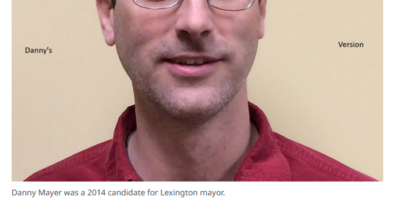By Marcus Flores
Tomas Lopez, a lifeguard of Hallandale Beach, is a rule breaker. The young Floridian was fired because, try as he might, he simply could not suffer the rule that would have condemned a man to drown who was swimming in the “At Your Own Risk” area a few hundred feet away. Lopez was “out of his protected area,” said Susan Ellis, his former supervisor, “we have liability issues.”
So I guess like that wretched and impotent narrator of a relevant William Cowper poem, Ms. Ellis would have presumably watched the watery death. Worse, she failed to admit even a modicum of regretful praise for Lopez’s damned-if-I-do-damned-if-I-don’t dilemma. It may be fun to chide her stoic response, though not exactly fair to dump the brunt of the blame on the woman in charge. Given today’s stifling legal climate, where a cup of coffee—a hot beverage, it’s worth remembering—is just one of many short cuts to a million dollars, it seems rather odd that some neglected swimmer has not already tried to sue for the few fleeting moments Lopez was administering first aid to the victim.
Except that Lopez responsibly radioed his fellow lifeguards (in response, his manager suggested he call 911) to alert them of the situation before dashing to the scene. In other words, his patch of beach did not go unsupervised. And, anyway, no lifeguard can ever be ubiquitous since the ocean is as big as it is dangerous. (I imagine there to be some unavoidable risk associated with occupying the domain of sharks and stingrays.)
For those not aware, the majority of quotidian activities entail varying degrees of risk. We seem to have been numbed by the notion that dimwitted decisions are somehow someone else’s fault. Mt. Laurel Pool in Hazelton, Pennsylvania, no longer exists because a man allegedly defied the very pronounced “No Running” signs, ran, and cut his heel. An on-duty lifeguard patched the superficial wound, which was anything but superficial in the eyes of several attorneys. A $100,000 suit, which ended in a settlement, forced the pool’s closing.
This cancer of frivolous lawsuits infects everything from the coast to the computer, such that simple procedures, like installing software, require verbose and unreadable contracts. When I began work on my blog, I discovered a host of terminology and documentation pertaining to acceptable picture usage. Licensing categories include Attribution, Creative Commons, Commercial, Attribtuion-ShareAlike, and other derivatives. Even with dutiful research, I still cannot be sure I haven’t tripped some legal landmine in what should be a comparatively safe endeavor.
For Lopez’s victim, the presently unanswerable question is why he risked the ocean at all if he were unable to swim. He chose his own fate; to save him disserves those beach goers that opted for the presence of a lifeguard, right? Should legal thinking butcher the idea of compassion? Whether the man could swim like a dolphin or a doornail is a non-issue because it undermines the most basic instincts of a lifeguard. Even the best swimmer can suffer a debilitating cramp that necessitates intervention, and, since none of Lopez’s swimmers were imperiled, foregoing the rescue would have amounted to moral—though not legal—dereliction. This is a very unsettling contradiction.
When Mt. Laurel Pool closed, the community lost an important recreational center—a healthy antidote for boredom (the parent of much mischief among youth). Staff and lifeguards lost their jobs. Greed tends to reward few and punish many, like Lopez whose sense of responsibility was considered a liability. I fully empathize with his decision not to return to work in spite of the company offering his job back. There are plenty of other things he could be doing for $8.25 an hour.




Leave a Reply